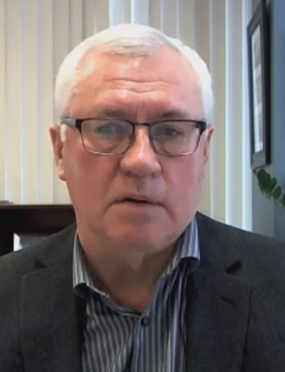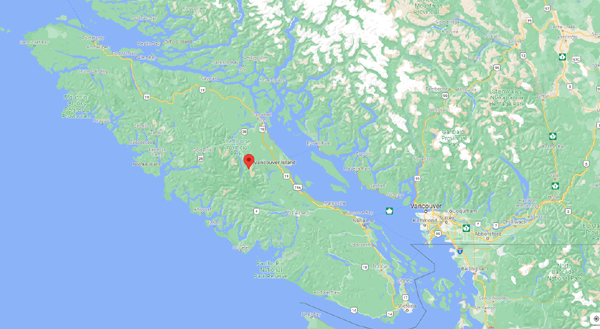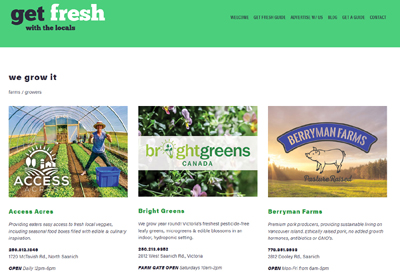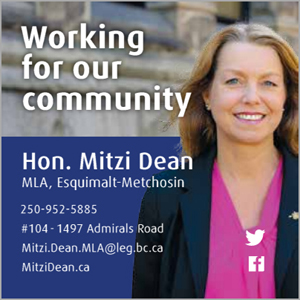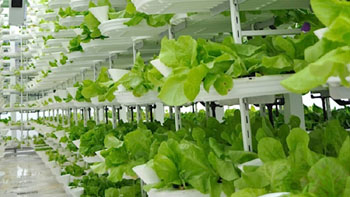
Saturday February 19, 2022 | VICTORIA, BC
by Mary P Brooke | Island Social Trends
Agritech is being welcomed to land that is within BC’s coveted and protected Agricultural Land Reserve (ALR).
This morning, Minister of Agriculture, Food and Fisheries Lana Popham and Minister of Jobs, Economic Recovery and Innovation Ravi Kahlon made an announcement bout increasing food production on the Agricultural Land Reserve (ALR).
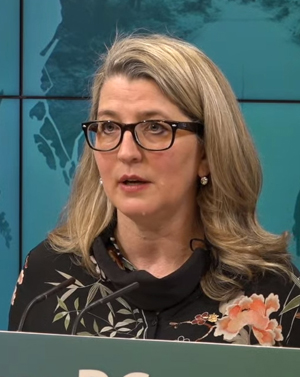
Along with Abbotsford-Mission MLA Pam Alexis and Abbotsford Mayor Henry Braun, the enthusiastic introduction of agritech regulations was made via YouTube.
“When the pandemic and recent climate change-related floods disrupted supply chains, British Columbians were reminded of the incredible bounty in our own back yard,” said Popham.
“Opening opportunities for more vertical farms and innovative agritech practices in partnership with existing traditional farms helps solve our overall food security and food economy puzzle.”
More intensive farming:
The regulation allows for more intensive farming, known as vertical farming, where crops are grown in vertically stacked layers, maximizing space and reducing energy costs and greenhouse gas emissions. While vertical farming can be placed anywhere, this opens the door to additional opportunities on ALR land for farmers and farm businesses to produce more food for British Columbians.
The ALR is designed to ensure food security and these changes allow it to be used in a practical way to increase local food supply. For example, vertical farming and other controlled environment structures can also make smaller pieces of land that are currently fallow more viable to grow on.
If for some reason an agri-tech business fails, there are conditions that soil be returned to a usable condition, said Popham today.
Agritech supports food security:
Agritech operations use technology and innovation, such as robotics for harvesting or controlled indoor growing systems, to produce more sustainable food, while using fewer resources.
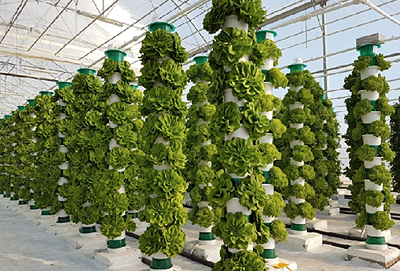
Agritech farming contributes to a more resilient food system with increased product density and shorter growing times with the potential to increase crop yields, product quality and food security.
BC has more than 150 agritech companies, including in areas of food processing, precision agriculture, bioproducts, food safety/traceability and soil/crop technology.
BC has an agritech land strategy that builds on recommendations made in 2019 by the Food Security Task Force to review land-use planning policies and regulations to ensure B.C.’s agritech sector has a place to grow.
The Government of BC is launching a Regenerative Agriculture and Agritech Network that will help farmers adopt the latest technology to increase profitability and environmental sustainability, while strengthening the provincial food system.
Positioning BC as an agritech leader while ensuring provincial food security and protecting farmland is a priority in both Popham and Kahlon’s minister mandate letters.
Part of StrongerBC:
Encouraging the implementation of agritech is part of enhancing food supply and food security in BC. Already, 50 percent of BC’s food supply is grown or produced in the Fraser Valley area. On Vancouver Island, less than 10 percent of the island’s food supply is grown or produced locally.
“It’s important to Buy BC,” said Popham, who has been heading up the agriculture file in BC since first elected in 2017.
Food produced locally by farmers in new opportunities to grow their businesses fits within the StrongerBC Economic Plan that was announced earlier this week.
After the wild fires, drought, heat waves and floods of 2021 most British Columbians have a heightened awareness of how important agriculture and the food sector is, said Popham today.
“It’s imperative to strengthen and grow the food systems that we have,” said Popham, while encouraging consideration of “all options”. To that end, some regulatory updates have been made. That makes things like vertical farming possible on ALR land in BC, to provide “more opportunities to increase food supply” in BC.
“As the agriculture capital of B.C., we know in the City of Abbotsford just how important this industry and agritech is to our economy, community and food security in the province,” said Henry Braun, mayor of Abbotsford. “Changes to the ALR regulation brings much-needed certainty and predictability for organizations to invest in and grow agritech in our community.”
Fostering innovation & investment:
Innovation in agriculture will lead to more jobs and opportunities. The new agritech provision within the Agricultural Land Reserve regulations will give confidence to investors, said Kahlon today.
Kahlon lauds farmers for their production which “feeds BC and the rest of the world”.
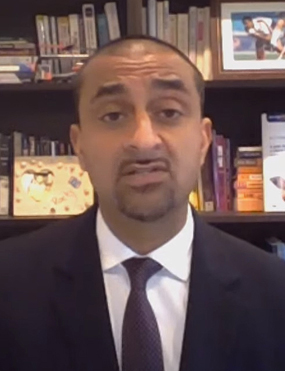
“When I first heard about agritech I was blown away,” said Kahlon. “We cannot wait to fight climate change,” said Kahlon, articulating that access to reliable, sustainable food for all is a top priority. New innovations in productive farming will include less use of water and in most cases less use of pesticides, said Kahlon. He notes that food grown locally also reduces the transportation carbon footprint.
“Agritech is a game changer,” the minister of Jobs, Economic Recovery and Innovation said. He commended the visionary leadership of three people who helped bring together the agritech idea to the ministry.
There are “big challenges ahead” which need to be tackled, said Kahlon, who has led the jobs and economic development file within the Horgan NDP government in the last few years. Prior to his election as an MLA (Delta North) in 2017, Kahlon had spent seven years in banking.
“BC has many economic advantages. The most important advantage is our people,” said Kahlon, who earlier this month announced that almost one million jobs will be need to be filled in the next 10 years in BC, with most of those needing some type of post-secondary training. Skills-training and new types of post-secondary education are being rolled out to support that.
Vancouver Island focus:
“Local, secure and sustainable food supply is what people what,” said Popham today. Popham made the announcement along with the mayor of the flood-ravaged Abbotsford area Harry Braun, but she is keen about her island food sustainability too.
Popham has been the Saanich South MLA since 2009 here on the island, and Minister Kahlon grew up in Victoria. Food supply and food security would be threatened on the island if there were ever to be a major calamity such as an earthquake.
Islanders saw a flavour of that sort of impact during the travel disruptions of the pandemic, when it became clear how the transport of food and most other supplies are brought to the island by truck (and ferry) and air. Though grocers and the Popham assured islanders that the food supply chain was solid as the pandemic unfolds, which overall turned out to be the case.
People know “very well that food security is a very big challenge,” said Popham related to the learning curve on this for most people during the last two years of pandemic.
Today Popham said that on Vancouver Island, less than 10 percent of the island’s food supply is grown or produced on the island.
Today she mentioned the food processing hubs that she’s led the development of in BC, some housing up to 40 businesses. She also mentioned a micro-greens container farm facility in North Saanich that produces “delicious green all year round”. See island food-growing businesses on the We Grow It – Get Fresh Guide website.
Vulnerabilities of the island agricultural sector were discussed by local candidates in Esquimalt-Saanich-Sooke during the 2021 federal election last fall.
Federally, a national soil health bill was introduced by Alistair MacGregor (MLA for Cowichan-Malahat-Langford) in the 33rd Parliament last year (needing to be reintroduced in the current 44th parliament).
===== RELATED:
Increasing food production on the Agricultural Land Reserve (Feb 18, 2022)
BC & federal Agriculture ministers tour Abbotsford flooded area (Dec 10, 2021)
Food supply stable as flood-impacted agriculture recovers (Nov 30, 2021)
Elxn44 ESS candidates: food sustainability on Vancouver Island (Sept 12, 2021)
Town hall by Alistair MacGregor on agriculture, food security, and climate change (July 14, 2021)
Island MP Alistair MacGregor introduces national soil health strategy bill (April 26, 2021)
===== AGRITECH LINKS (supplied by BC Government):
- Learn more about B.C. agritech (PDF)
- Learn more about the Regenerative Agriculture and Agritech Network
- Learn more about the Agritech Concierge program.
- Learn more about the Agritech Grant program recipients.



